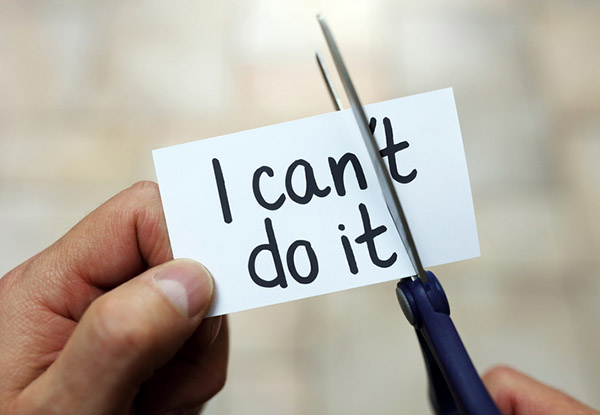Life coaches can help individuals take action to realize their goals, a process in which self-confidence plays an important role. Though many people may struggle with low self-confidence to varying degrees, research has shown that there exists a confidence gap between men and women, with the latter being more apt to suffer from self-doubt in relation to performance in multiple areas of life (Kay and Shipman, 2014). An example related to this phenomenon that researchers have uncovered is that women ask for 30% less than men do in salary negotiations, and they are also less likely to pursue certain opportunities despite being equally competent (Kay and Shipman, 2014). A case in point is a finding by the Canadian Women’s Foundation (n.d.) that boys are twice as likely to pursue STEM (Science, Technology, Engineering and Math) careers compared to girls.
The good news is that confidence can be built up and can even grow over time (Kay and Shipman, 2014). As a life coach, you may find yourself assisting your clients, perhaps primarily women, in building up this characteristic so that they may feel more assured regarding their abilities.
Helping Clients Name an Obstacle Is an Important Step Towards Addressing It
An important aspect of overcoming low self-confidence is to start by naming it as an obstacle. Personal realization is important, especially in a professional setting, because it has been shown that individuals may be unaware of how they present themselves. In fact, Kay and Shipman (2014) state the following: “Male executives who notice [low self-confidence in women] don’t mention it because they don’t want to sound sexist.” As such, once you become a life coach, helping clients acknowledge this factor is an important first step towards addressing it.

As a life coach, you can help a client realize low self-confidence might be holding them back
Self-Confidence Is Linked to the Strength of a Person’s Inner Critic
During their research on the confidence gap, Kay and Shipman (2014) found that women are more likely to attribute a negative situation internally and blame themselves, while men will lean towards using external circumstances as an explanatory factor. This brings us to one of the biggest contributors to low self-confidence—a person’s inner critic—which research confirms tends to be stronger in women (Dunn, 2016).
Experts state that: “This critic can be like a nagging voice that questions each decision and undermines each accomplishment, and it can leave a person with difficult feelings such as shame, inadequacy, or guilt.” (Goodtherapy.org, n.d.) In doing so, it can “discourage individuals from acting in their best interest” (Psychalive.org, n.d.), and lead to a greater propensity to play it safe (Eddins, 2016).

Addressing one’s inner critic is an important step to building self-confidence
In order to build confidence, stepping out of one’s comfort zone is necessary, and addressing one’s inner critic is important in this process. The first step in working with a client’s inner critic is, once again, to help them be aware of it (Eddins, 2016). Basic counselling courses, uniquely offered by Rhodes Wellness College as part of its life coach training program, can equip students with the tools necessary to help a client identify their inner critic. Often this critic emerges after a particularly traumatic childhood. Once that inner critic has been identified, it can be easier for a client to realize when that critic is creating self-doubt, projecting feelings of inadequacy, or otherwise causing harm.
Professionals With Certified Life Coach Training Help Clients Realize Their Strengths
Professionals with certified life coach training know that self-assurance is also influenced by how a person perceives their strengths and abilities. Studies show that women routinely underestimate themselves, whereas men do the opposite (Evans, 2016; Kay and Shipman, 2014). For example, men are likely to apply for a job opening or promotion when they meet just 60% of the listed requirements, but women will often wait until they have 100% of what is necessary to apply (Evans, 2014).
However, it can sometimes be difficult for a client to easily recall or acknowledge their strengths. Asking a client to reminisce on a time when they felt confident can help them remember their successes. For clients who find it especially difficult to discover their strengths, you might even recommend that they ask a trusted friend or family member for help in recalling accomplishments and other positive moments (Mind, 2016).
Are you interested in pursuing a life coach career and learning how to help others develop their self-confidence?
Explore the options offered by Rhodes Wellness College.
Works Cited
Canadian Women’s Foundation (n.d.). The Facts About Barriers Girls Face. Retrieved January 8, 2018, from https://www.canadianwomen.org/the-facts/barriers-for-girls/.
Dunn, C. W. (2016). 10 Things You Can Do to Boost Self-Confidence. Retrieved January 18, 2018, from https://www.entrepreneur.com/article/281874.
Eddins, R. (2016). Working with Your Inner Critic. Retrieved January 23, 2018, from https://psychcentral.com/lib/working-with-your-inner-critic/.
Evans, L. (2014). Is There a Gender Gap in Confidence? Retrieved January 18, 2018, from https://www.entrepreneur.com/article/233516.
Goodtherapy.org (n.d.). Inner Critic. Retrieved January 22, 2018, from https://www.goodtherapy.org/blog/psychpedia/inner-critic.
Kay, K. and Shipman, C. (2014). The Confidence Gap. Retrieved January 19, 2018, from https://www.theatlantic.com/magazine/archive/2014/05/the-confidence-gap/359815/.
Mind (2016). How to increase your self-esteem. Retrieved Jan 25, 2018, from https://www.mind.org.uk/information-support/types-of-mental-health-problems/self-esteem/#.Wmosma6nF1s
Mindtools.com (n.d.). Building Self-Confidence. Retrieved January 19, 2018, from https://www.mindtools.com/selfconf.html.
Psychalive.org (n.d.). Critical Inner Voice. Retrieved January 18, 2018, from https://www.psychalive.org/critical-inner-voice/.










